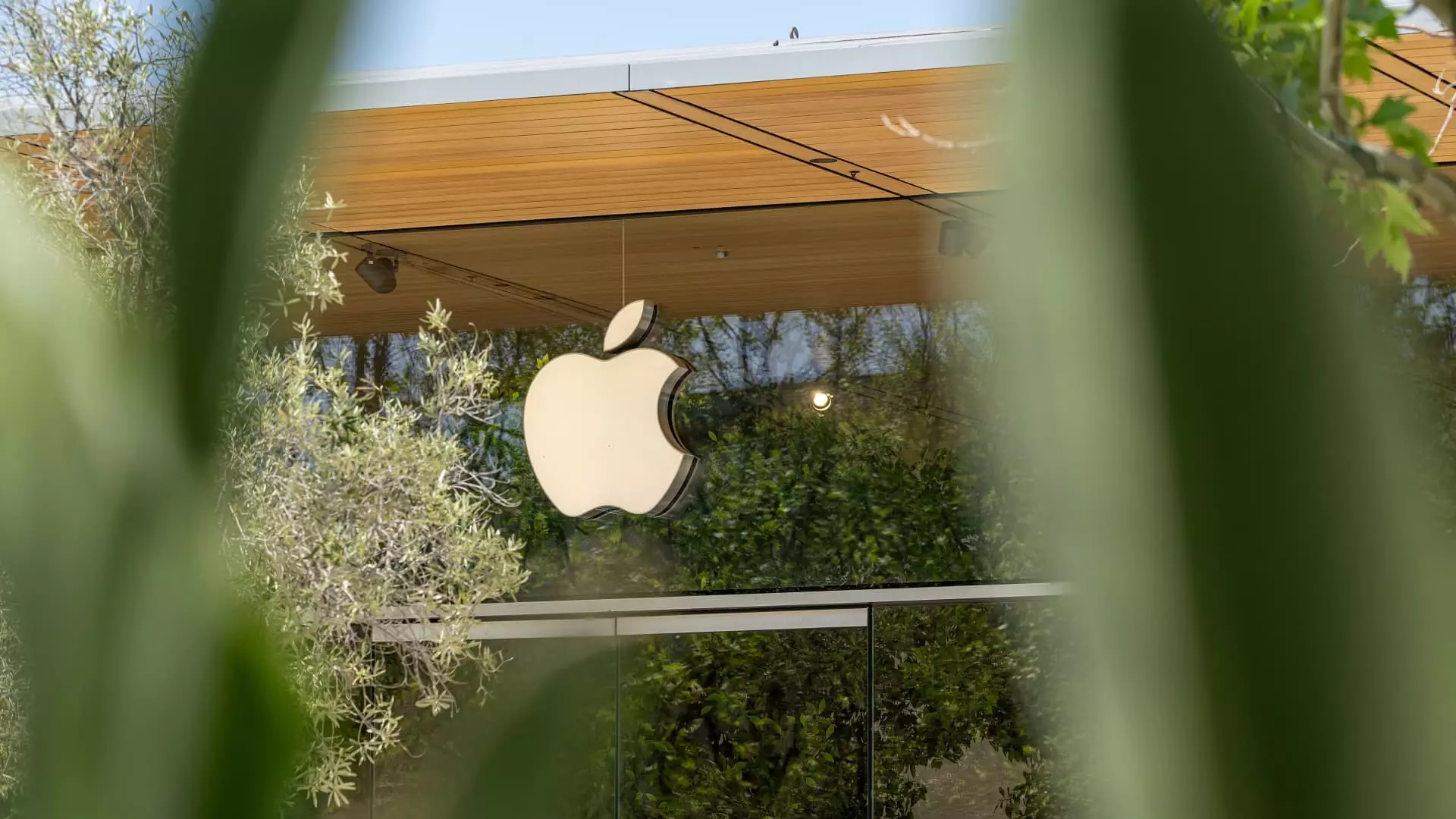In an increasingly polarized digital marketplace, the recent clash between tech powerhouse Apple and gaming behemoth Epic Games marks a significant turning point in how app stores operate. As Apple battles to maintain its stringent in-app payment policies, the crux of the situation reveals a tension not just between two industry leaders, but also between corporate interests and consumer choice. The legal fight illustrates the broader implications for tech companies navigating antitrust scrutiny and the evolving demands for fairer business practices.
Apple’s Reluctance to Adapt
At the heart of the controversy is a move by the U.S. District Court, led by Judge Yvonne Gonzalez Rogers, to impose a ruling that compels Apple to relax its monopoly over in-app purchases. By requiring Apple to lift its commission fees linked to payments made through external web links, Rogers aims to enhance competition and foster a healthier ecosystem for app developers. In its response, Apple has sought a legal pause on this decision, arguing that the mandated changes could lead to daunting financial losses—potentially amounting to billions—while also claiming that such adjustments harm developers and consumer choice. This position betrays a stubbornness on Apple’s part, showcasing its hesitance to adapt its business model to a new reality wherein developers seek flexibility and fairness.
The Implications for Developers and Consumers
As the battle unfolds, it becomes clear that the implications extend far beyond Apple and Epic. The changes already rolled out, allowing developers like Amazon and Spotify to skirt around Apple’s fees by redirecting users to their websites, signify a seismic shift in how transactions within apps could occur. This newfound freedom allows developers more autonomy and potentially improves the economic outlook for those operating in a competitive digital landscape. For consumers, the ability to choose how they transact within apps—without excessive commissions detracting from their overall experience—could catapult user satisfaction and instigate a cultural change across the app ecosystem.
Epic Games stands firmly behind the push for a more equitable structure, with CEO Tim Sweeney vocalizing a sentiment that resonates with many industry participants: this ruling compels Apple to engage in healthy competition. In a marketplace long dominated by Apple’s policies, the possibility of altering the status quo brings hope for a diverse app environment that prioritizes the interests of developers and consumers alike.
The Broader Context of Antitrust Scrutiny
Apple’s predicament is not just a legal squabble; it is part of a larger narrative surrounding antitrust laws and the power dynamics of Silicon Valley. The scrutiny directed at tech giants has intensified in recent years as lawmakers across the globe seek to dismantle monopolistic practices that stifle innovation and consumer choice. Apple’s claims of financial hardship must be collated against these larger discussions about corporate responsibility, ethics, and the importance of a fair market.
Moreover, the choice to request a stay on the court’s ruling suggests a level of desperation within Apple’s ranks, a corporation that has frequently positioned itself as a champion of user rights yet struggles to reconcile those claims with profit-driven motives. Apple’s defense—that it follows court orders and intends to appeal—may come across as a defensive tactic, designed to reclaim its control rather than genuinely address the market’s evolving needs.
The Consequences of Misleading the Court
Compounding Apple’s troubles are the allegations of misleading the court, which Judge Rogers has harshly critiqued. With accusations that senior Apple executives, including Tim Cook, misrepresented facts regarding the company’s pricing strategies for external payments, the trustworthiness of Apple’s leadership comes into question. The potential ramifications of a criminal referral raise the stakes even higher, adding a layer of moral ambiguity to an already complex legal narrative. With such allegations on the table, it becomes imperative for Apple to engage transparently with consumers and developers alike, lest it risks further alienating them.
Ultimately, as Apple works to rally for a stay on the new ruling while claiming compliance with court orders, the case encapsulates a pivotal moment not merely for Apple or Epic but for the entire technology landscape. The outcome will likely reverberate through the industry, influencing how competitors approach user payments and the nature of digital marketplaces in the years to come. The struggle for fairness, competition, and consumer rights remains precariously perched at the intersection of innovation and corporate governance.


Leave a Reply